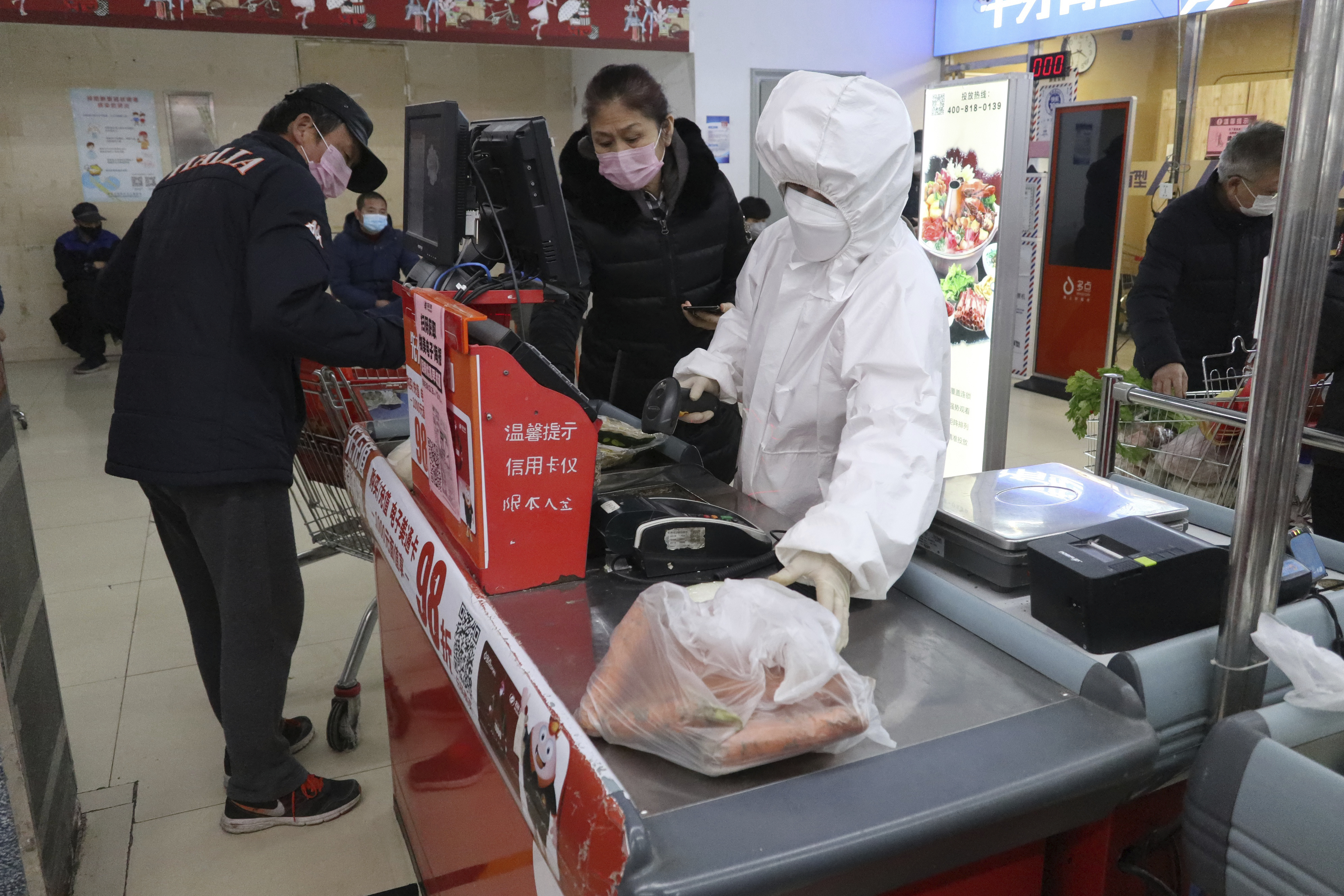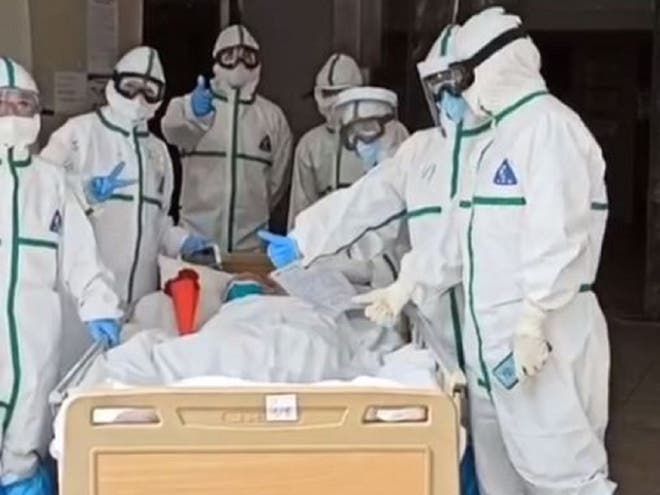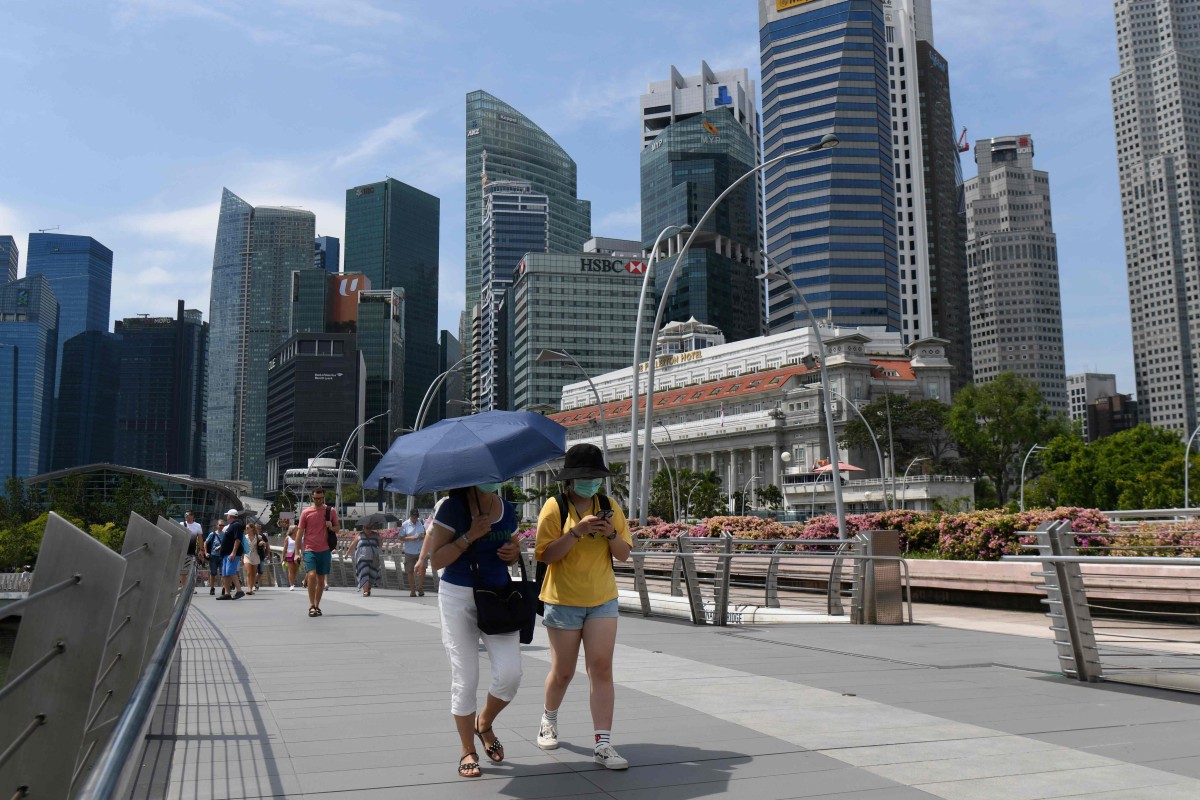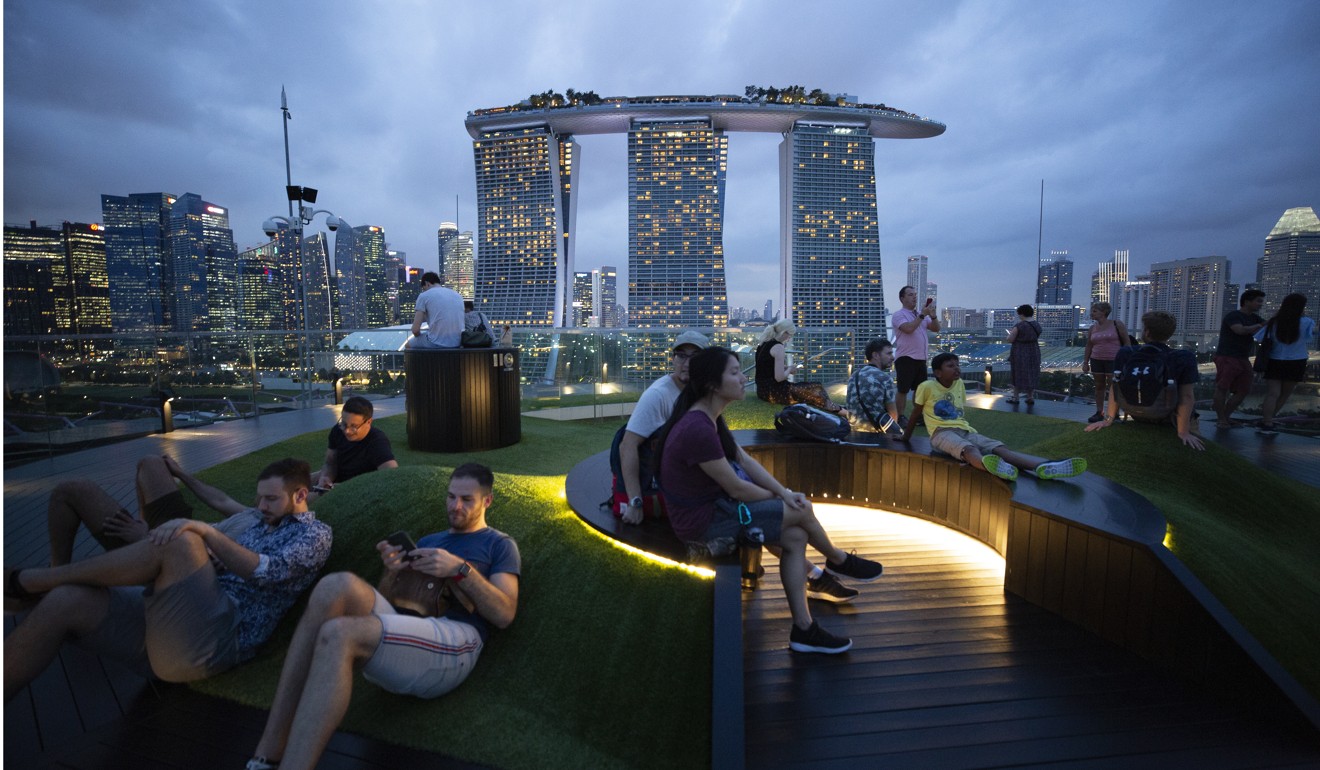‘Cherry freedom’ sweeps China despite virus fears — and the thrill is infectious

A supermarket in Beijing offers boxes of cherries for sale in January under a sign displaying a negative coronavirus test result. (China News Service/Getty Images)
By Lyric Li and Eva Dou
March 8, 2021 at 2:00 a.m. PST
Among Chinese youths, the term “cherry freedom” has meant the aspirational level of financial security where you can buy premium fruits whenever the whim strikes.
So it came as a shock when cherry freedom suddenly arrived for everyone.
In January, Chinese media reported that packaging from a shipment of Chilean cherries had tested positive for the coronavirus. In the confusion that followed, Chinese retailers dumped cherry orders and consumers shunned the fruit.
Chinese health experts went on TV to say cherries were safe to eat if you washed them (the U.S. Centers for Disease Control and Prevention says the risk from eating or handling food is “very low”), while Chile’s embassy said it hadn’t been confirmed that the tainted batch was from Chile. But it was too late: Prices collapsed as 288,000 tons of imported Chilean cherries approached their expiration date.
Adventurous eaters saw a golden opportunity to binge on cherries for as little as $2 to $3 a pound, less than a third the usual price in China.
“Before, we’d seen cherries as a high-end fruit that only those with financial means consumed,” said Gu Xi, a 24-year-old accountant in Beijing who recently bought a 5.5-pound case of cherries for $23. “Now that we can afford it, it feels a bit like we’ve gotten closer on some level to the rich.”
Each winter, 90 percent of Chile’s cherry crop arrives in China, with this season’s shipment estimated at 288,000 tons. The cherries are usually snapped up at premium prices, a taste of summer in the cold months for China’s well-heeled.
Gu said he’s enjoying the moment, even if it’s fleeting. “Cherry freedom doesn’t actually mean our living standards and purchasing power have gone up.”

Customers shop for imported cherries at a market in Kunming. Prices of the fruit have plunged in China because of coronavirus fears. (VCG/Getty Images)
On social media, many are celebrating their small windfalls. “I’m going to pound cherries like a bowl of rice,” one user said. “I have achieved cherry freedom early in the morning,” another said, posting a picture of a basin full of cherries.
“All you can eat,” one Beijing spa advertised, over a photo of a glass punch bowl brimming with cherries.
People reported using varied methods to try to clean the cherries before eating them, including dousing them in baijiu, a Chinese liquor that is up to 60 percent alcohol by volume.
Alice Du, a 30-year-old university lecturer in China’s subtropical Kunming, said cherries conjured up images of a middle-class lifestyle.
“You can look at cherries as another version of the avocado,” she said. “Perhaps people put too much intangible value on it. But by now, it isn’t just another type of fruit.”
Du said she felt safe eating cherries, but she decided not to buy them for friends and family this year because of the coronavirus controversy.
“You don’t know if the person receiving the gift might mind,” she said.
A gift of cherries brought trouble for one family. In the southeastern province of Jiangxi, a family of five was taken in for a two-week quarantine on Feb. 15 after a relative brought them a case of cherries as a gift, according to the state-run Health Times. Authorities said the gift box came from a shipment that tested positive for the coronavirus.

Imported cherries are sold at $5.41 a kilogram ($2.46 a pound), less than a third of their usual price, at a roadside vendor near Yunnan University of Finance and Economics in Kunming on March 1. (Alice Du)
While other cherry consumers were not quarantined, some workers were after handling a cherry shipment where packaging tested positive for the virus.
State media reported that a woman surnamed Wang in Guangxi province bought 6.6 pounds of cherries and indulged for five days until she developed bloody diarrhea and had to be taken to the hospital. Citing Chinese medicine principles, doctors said cherries are a “warming” food that can cause inflammation if consumed in excess.
Adding to the hubbub, imported cherries and domestic cherries in China are sold under different names, leading to confusion over which fruit exactly was implicated in the virus scare. Chinese farmers have long grown bright red and yellow cherry varieties called yingtao. Imported jumbo dark-purple cherries are sold instead as chelizi, an approximation of the English word “cherries.”
So many people were asking if the two fruits were the same or different that experts were brought in to explain.
“There actually isn’t any essential difference between domestic yingtao and imported chelizi, aside from some difference in taste,” Yang Jie, honorary chairman of the China Fruit Marketing Association’s cherries division, told the state-run National Business Daily.
The term “cherry freedom” entered popular use in 2018, as part of a tongue-in-cheek hierarchy of financial security circulated among Chinese millennials. At the top was “house freedom,” the ability to purchase a house, something far out of reach for many young people.
At the bottom was latiao freedom, or “spicy sticks freedom,” referring to a cheap snack of fiery fried dough strips popular among penny-pinching students.
In between were other degrees of freedom, including Starbucks freedom and car freedom. More than these others, cherry freedom has captured the public imagination.

Alice Du, a university lecturer in China’s subtropical Kunming, said she is not too bothered by coronavirus concerns related to cherries, and has continued to eat and photograph them. (Alice Du)
As cherry prices plummeted, Chile’s Foreign Ministry and the Chilean Fruit Exporters Association sponsored a $1.5 million advertising campaign across China to mitigate the damage. Cherries are serious business for Chile, the world’s largest cherry exporter, with last year’s sales to China worth $1.6 billion.
One ad showed a family gathered to play mah-jongg with a basin full of cherries ready for snacking. Another showed a bouquet not of roses but of individually wrapped cherries.
The campaign included testimonials by Chinese food-safety experts on state television, the Chilean export group said in late January.
“For consumers, imported fruits usually won’t cause infection,” Feng Zijian, deputy director of the Chinese Center for Disease Control and Prevention, told state broadcaster CCTV. “After washing it with water, you can eat it without fear.”
Gu, the Beijing resident, said that imported cherries were sweet, jumbo-size and had a nice color but that the taste was not always as complex as tart domestic cherries. He said what he really wished for was durian freedom. The pungent tropical delicacy remains the priciest fruit in stores.
“I think a lot of people are trying to be trendy,” he said. “If not for the discounts, I wouldn’t necessarily go to buy chelizi, because they are not something you need in your everyday life.”






 Reply With Quote
Reply With Quote


















